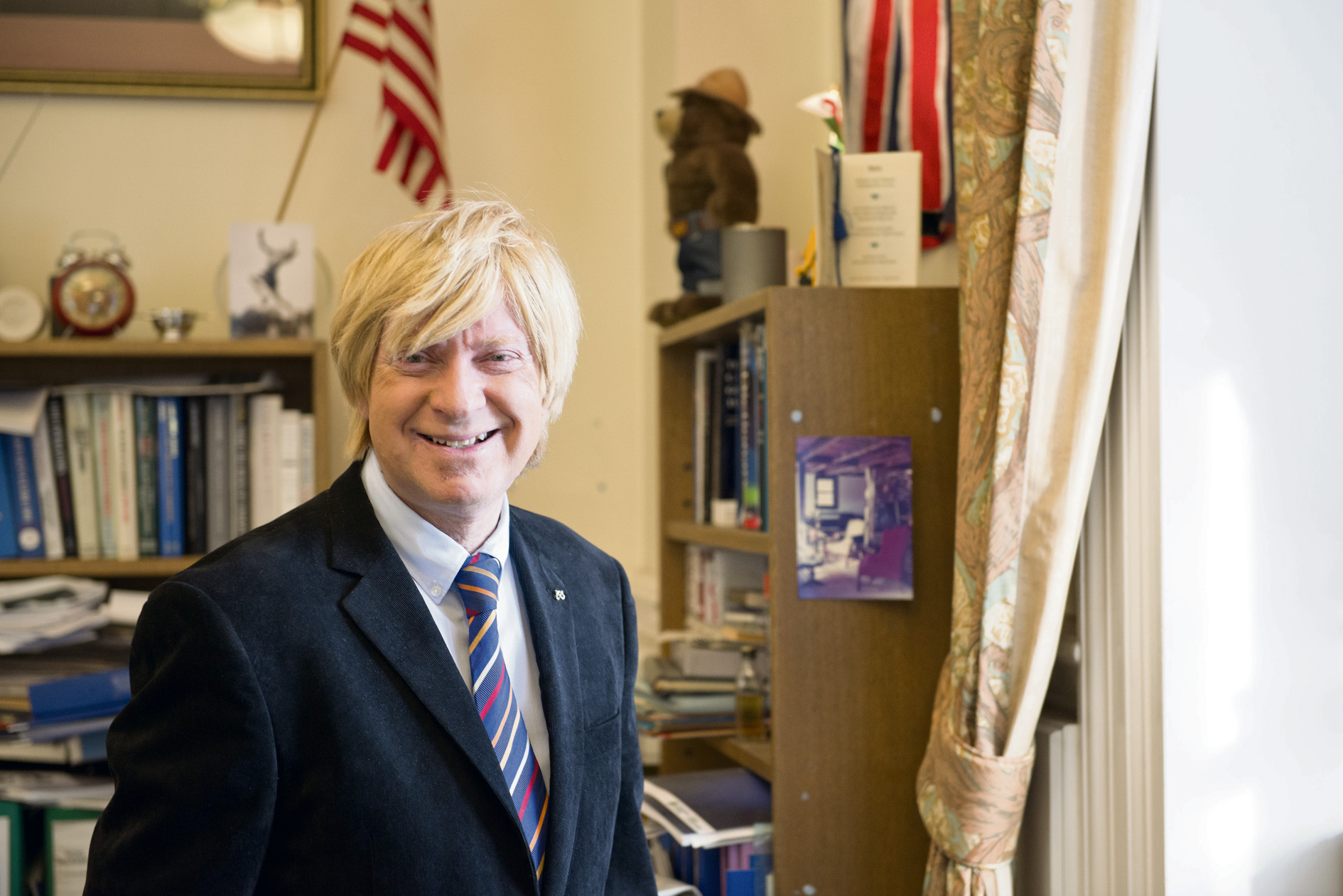EU referendum: Tory MP Michael Fabricant discusses leaving the EU, in-fighting and the way forward for the splintered Brexit groups

“The UK may be 25 miles off the coast of Calais, but culturally it’s 25 miles off the coast of Boston, Massachusetts, or Brisbane, Australia,” says Michael Fabricant, MP for Lichfield and former Conservative Party vice-chairman.
Fabricant, who readers may know from his wryly written tweets that get him into occasional trouble, is a man who “believes in the strength of the Anglosphere” – those countries who were formerly part of the British empire and have kept and updated British customs.
“It’s not just the culture and the language, it’s the legal system as well,” he says.
But Fabricant is pessimistic on the leave campaign’s chances should a referendum happen this year.
The splintered campaign groups lack leadership and a compelling vision of a Britain outside the EU. The two main “out” groups, Vote Leave and Leave.eu, have failed to merge and are now bickering over who should be the official Leave campaign group when the referendum is announced.
Labour MP Kate Hoey quit Vote Leave last week. Labour Leave, an out group for Labour MPs, announced its independence of Vote Leave shortly after. Not only do the eurosceptics need to settle under a single banner, Fabricant argues, they need a good leader.
“They’ve got to find a charismatic, credible business person to lead it,” Fabricant says. “An articulate business person – I don’t think a politician should do it.”
The out campaign needs its own Stuart Rose, the former Marks and Spencer boss currently chairing Britain Stronger in Europe.
Trade
A second reason is weighing on the Brexit campaign’s chances – its lack of vision for a UK outside the EU.
“They’ve got to talk about the positives of leaving, not just the negative aspects of EU membership,” he argues.
On the wall of his Westminster office is a map of all the countries he exported to as a producer of broadcasting equipment back in the 1980s. Drawing pins are scattered across the US, Europe and countries as far east as China.
He is certainly no protectionist, he believes in free trade, and that is something he wants to see more of – a UK that is able to arrange its own trade agreements with the Anglosphere and the rest of the world.
Britain, Fabricant argues, could trade with the US on better terms than the EU is likely to agree in the Transatlantic Trade and Investment Partnership – a trade deal currently being negotiated. He quotes a US diplomat who told him the UK could be trading on the same terms as Canada, were it not for the US trying to protect itself from so-called dumping – cheap goods coming in from low-wage eastern European countries. He calls the EU a “ball and chain around the ankles of our economy.”
“It’s not that I want to be leaving something, I want to be rejoining something – and that’s the world community,” Fabricant says.
But such a vision is lacking among the splintered campaign groups lobbying for an exit. Many are more interested in talking about the direct costs of EU membership, rather than the opportunities to be gained by leaving.
He also laments the idea that the EU would try to punish the UK if it left to dampen the spirits of leave campaigns in other member states.
EU members are part of the World Trade Organisation, so punitive tariffs on British goods and services would break rules, Fabricant points out. Britain is also the biggest European export market for German cars and the biggest consumers of champagne in Europe, he adds.
Immigration
Another area in desperate need of clarification for the pro-Brexit lobby is immigration.
There are currently around two million EU workers in the UK. Throwing them out would not only break international treaties, says Fabricant, but would be “cutting off our noses to spite our faces”. Immigration needs to be managed, he argues, but not stopped.
“The idea that there will be absolute chaos [if we left the EU] – it is not going to happen”.
“There will always be migration, and it’s always been a good thing.”
“I remember years ago when we had our party conferences in Blackpool. This rather gorgeous girl from Lithuania was doing the vacuum cleaning and I thought ‘great, what’s wrong with that?’”
The belief that EU workers are taking British jobs does not sit well with Fabricant. We’re close to full employment, he says, stating proudly that the unemployment rate is 0.7 per cent in Lichfield, one of the lowest in the country. The UK-wide jobless rate is 5.1 per cent.
Fabricant’s arguments for leaving the EU are coherent and thought through. But if the Brexit lobbyists are unable to heed his advice and unite around a charismatic leader with a trade-orientated vision, they are unlikely to run a successful campaign.